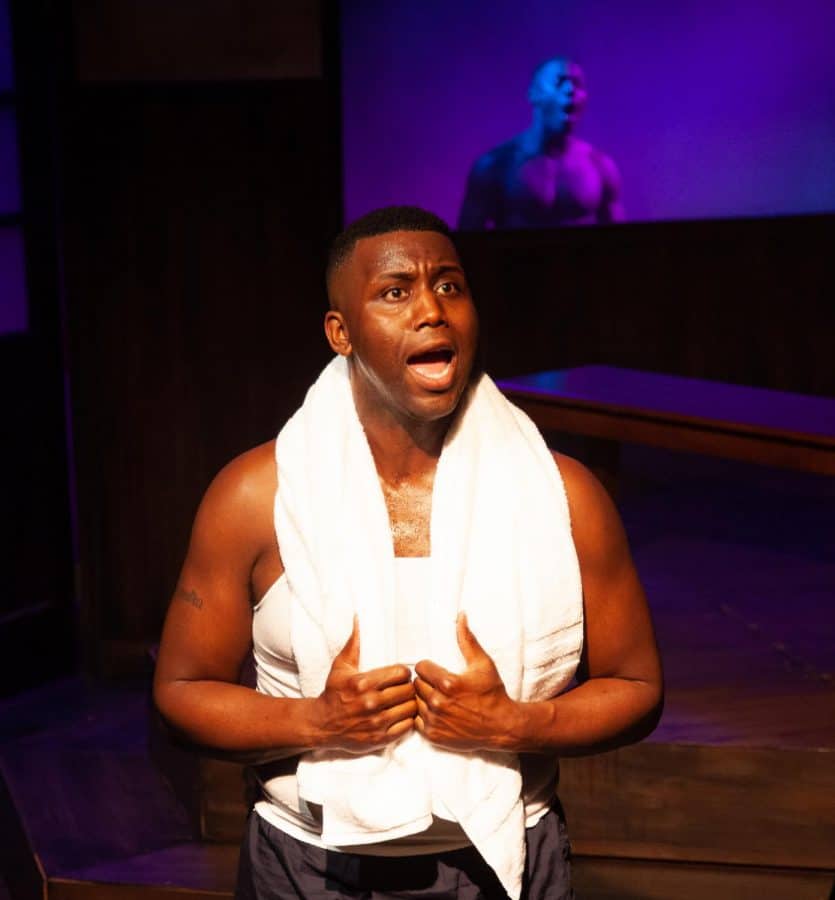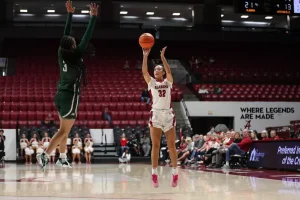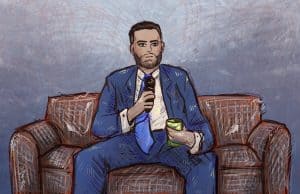Chasing ‘Choir Boy:’ off-Broadway show gives a voice to black, queer males
August 26, 2019
“Choir Boy” tackles underrepresented issues of race and sexuality in a riveting, rollercoaster sequence of heart-wrenching and humorous scenes. In its off-Broadway debut, the show marries wit and honesty for a beautifully tear-jerking coming-of-age story.
An impressively pitch-black, silent theatre provided a blank canvas for the stage lights to give way to our hero, Pharus Young, singing an a cappella song at Charles R. Drew Preparatory School’s commencement ceremony. It was the calm before a storm of emotions was thrust upon the audience by the musically gifted cast, no holds barred.
A gaggle of chuckles and racial and homophobic slurs broke the serenity of the scene, and the focus of the singer, giving the audience a harsh clue about the recurring issues that Young, the choir lead, was in store to face. What followed in the next hour and a half were power struggles between members of the half-a-century-old Gospel choir and the headmaster, who happened to be the uncle of Young’s chief adversary, Bobby Marrow, the chuckling, derogatory comment-maker. Mixed in with the conflict were clear journeys of self-discovery and thought-provoking dialogue that unpacked and debunked age-old stigmas that queer people and people of color face.
Carlton V. Bell II, artistic director and founder of the Birmingham Black Repertory Theatre Company (BBRTC), the company behind this production of “Choir Boy,” had been chasing the show as an actor long before they decided to create a production company themselves. After experiencing a lack of people who looked like them in auditions for shows and media in general, Bell decided to take matters into their own hands.
“I just wasn’t seeing people that looked like me producing stories about us in the rooms that I was going into as an actor auditioning, and it was really frustrating for me,” Bell said. “I remember leaving out of an audition one day, looking back at the marquis of the theatre I was walking out of, and I was just so flustered at the audition and I was like, ‘What is this thing that you have, this power that you have over me that I can’t create myself?’ And I got on Google that night, and I literally Googled ‘how to start a company.’”
Bell, who directed the show, chose “Choir Boy” as the company’s first production because it depicted the queer black male, a narrative that is not often shown on stage or other aspects of media.
“A lot of times we see black queer people’s trauma, or black people’s trauma in general, on stage,” Bell said. “Pharus has a lot of trauma that goes on, but he’s not a sad kid. He is very aware of how good [a singer] he is, and he’s not only aware of that, he’s demanding things because of it, like he’s demanding that space. And that resonates so much with me because that is what I’m doing.”
Damone Williams played David Heard, a student called to ministry whose character revealed a love interest for Young at the play’s climax. Williams said Tony Award-winning playwright Tarell Alvin McCraney creates characters for black men to relate to with traits that are rarely shown on-screen.
“It’s a brilliant way that [McCraney] captures softness in black men especially, who are not typically able to be soft,” Williams said. “So he allows us to see ourselves as soft and gentle, and I think that’s necessary.”
Dorian, the actor who portrayed the main character, Young, said it’s necessary to feature black male representation in roles outside of negative stereotypes.
“It’s important to see other black men play roles that are not derogatory,” Dorian said. “To understand that we can be the doctors, we can be the lawyers, we can be the teachers, we can be the fathers, we can be those good characters and not just the drug dealers or the thugs and things that Hollywood kind of pigeonholes us to.”
Despite repeated bullying throughout the play, Young stayed focused on his personal goals in the choir and maintained an unwavering humor. In a scene between Young and Anthony ‘AJ’ James, a cis-gendered, heterosexual baseball player and choir member played by UA student Christian Hatcher, the two bonded while James gave Young a haircut.
“Seeing a cis- het- black male having a positive relationship with someone who is openly black and queer, like that’s a narrative we don’t see ever, and it’s a narrative that I know really well, so I was really glad to show that,” Bell said.
The haircut scene, where Young described feeling out of place at barbershops throughout his life, was especially relatable for some members of the audience. Marcus Johnson, a freshman majoring in musical theater, said he felt a similar way at barbershops.
“It seemed as if I was an outcast because everyone was so together, like a brotherhood, but I was over here because I like boys,” Johnson said.
Ultimately, “Choir Boy” didn’t conclude with any clear resolution to the world’s issues surrounding black male queerness, or even clear up all animosity between Young and homophobic comment-making Marrow, but it addressed and allowed audience members to think about concepts that Young and other characters brought to light.
“The power and beauty of theatre and art in general is it makes you question,” Williams said. “It shouldn’t preach, it shouldn’t tell you what to do, but it makes you walk out of the theatre going, ‘Hmm, let me think about that.’”










